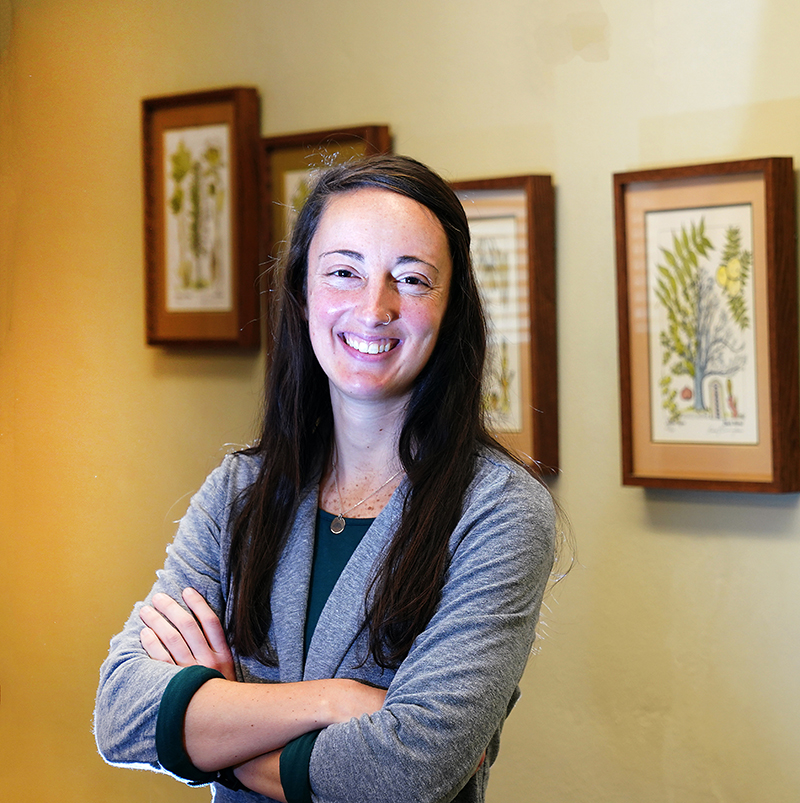The student
Becca Nixon grew up outside of Detroit, where she loved spending time at the lake and being outdoors. Her academic studies in agriculture, however, would wait until after she earned a degree in English education from Grand Valley State University. Once Nixon decided not to pursue a career in that field, her interest in issues related to food security and the environment took her to Colorado to work on a diversified organic farm. She then earned dual master’s degrees in sustainable agriculture and community and regional planning at Iowa State University, where she researched water management systems in central Asia. Having a father who went to Purdue and family in Indiana tipped the scales toward doctoral study in West Lafayette — but it was the work of Zhao Ma, professor of natural resource social science, that was most influential, as well as Purdue’s reputation as a leader in research on agriculture and natural resources. Dr. Ma’s Human Dimensions Lab in the Department of Forestry and Natural Resources studies how individuals and organizations make decisions about natural resource management and conservation in the context of social-ecological change. Nixon began her doctoral program under Dr. Ma’s guidance in fall 2017.
The research
Nixon’s research, which focuses on people whose livelihoods are tied to the Swat and Kabul Rivers in northern Pakistan, is part of a larger, interdisciplinary collaboration between Purdue and the University of Peshawar (UP), co-led by Dr. Linda Lee and Dr. Bushra Khan. Working with UP graduate students, Nixon interviewed and surveyed farmers, fishers, tourism workers and community leaders to better understand the economic and non-economic costs of their adaptation to climate change. “One of our main goals of the broader project is to understand the complexity of social and ecological systems,” she says. “Getting data from all of these facets helps us better understand how humans and the environment interact.” It also can inform policies that protect the environment as well as livelihoods, she adds.
Opportunities
“I’m so thankful for the opportunities I’ve had at Purdue,” Nixon says. “In addition to traveling to Pakistan twice to do fieldwork, I’ve mentored undergraduates in the lab through their own research and assisting with mine, and have been able to co-teach online and in person.” She also appreciates being part of Purdue’s Ecological Sciences and Engineering interdisciplinary graduate program. She co-chaired the 2017-2018 ESE-sponsored symposium that brought climate scientist Katherine Heyhoe to Purdue. “That was an incredibly rewarding experience to facilitate an event at that level,” Nixon says.
Future plans
Nixon began a postdoc this semester with Illinois-Indiana Sea Grant. Her goal is to remain in academia — “teaching and mentoring students while doing research”— at a land-grant institution that also provides access to extension and outreach. In her spare time, Nixon enjoys running and baking as well as hiking and camping: “Like many FNR students, I love being outside,” she says.
